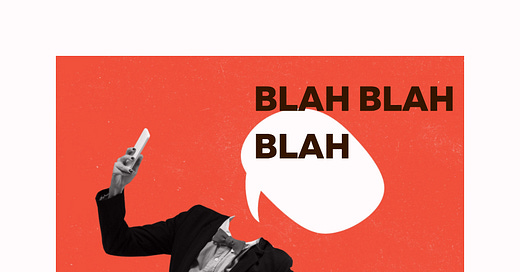Look up "The worst thing about Americas," and you'll find enough articles and videos to last you a month's worth of wasted time. Too much fast food, too many guns, too polarised, too overrated, too backwards, too much imperial system nonsense, too individualistic, too many racist cops, too shitty at non-American geography unless there's a war, and too smiley.
Touché. Actually, touché isn't the right word because that'd imply everything just came from an opponent at my expense. I'm not American. Well, technically, I am. I was born in Chile and have a Canadian passport, meaning I'm part of the Americas in two ways.
But when people talk shit about Americans, they're really only talking about 'Mericans. And sometimes Canadians, because let's face it, we're not that different. We have universal health care, toonies, and loonies, but if it weren't for our desperate attempt to separate ourselves with little maple leaf pins on our travel bags, nobody could tell us apart. We're truck-driving, strip-mall-goin' consumers who don't bother to speak more than one language unless we're immigrants. Oh, wait, we're all immigrants. Sometimes, we forget that. What I mean to say is first or second-generation immigrants.
But what's the worst thing about non-Americans?
Is it our lack of helmets and pads in football? Our hypocrisy of hating American culture while consuming it everywhere? Our audacity to call Americans dumb, although they've created the most intellectually prosperous country in the world? Or is it our pretentious way of saying "America lacks culture" while ignoring the hundreds of languages spoken by indigenous populations throughout history?
No, it's none of that. Also, if this is your first time tuning into
, you might be confused by the word "our." My family is primarily Belgian, and I live in Spain. I don't say this to be all like, "Oooh, look at me, I'm a global citizen," but to point out how an "us vs them" dichotomy doesn't make sense for many of us.Alright, so what is the worst thing about non-Americans?
Voice messages.
ExxonMobil's Climate Change denial, Volkswagen installing software in their diesel vehicles to cheat on emissions tests, Nestlé's water privatization, Amazon giving zero fucks about their employees, the financial industry's pursuit of short-term profits through unethical practices, and pharmaceutical companies selling us addictive drugs show how greedy and selfish humans can be.
Still, I'll fill up a VW Golf at an ExxonMobil gas station while drinking Nestlé iced tea to wash down Dexedrine on my way to an Amazon pickup spot before I open a damn voice message.
Voice messages have got to be the most selfish and least efficient mode of communication. I'd sooner use a telegraph.
But apparently, they're not going anywhere. In fact, they're likely to increase in popularity.
“We are just about still within the best-before dates of voice-note sharing. One-minute-thirty recordings of chit-chat which can transport the listener to your surroundings in an instant, give a complete vision of someone's character, and catapult you into the realm of strong human connection.” —
in Shelf Life 🍣 Is face-to-camera dead? Four reasons it might be.
Voice memos do not catapult me into the realm of strong human connection. They catapult into a fury capable of beheading unfriending anyone who dares send:
That would waste 37 seconds of my life. Maybe even ten minutes if I had to step outside to hear that half-baked thought process. If you can't think aloud, keep your thoughts inside that skull until you can type out the words "Let's meet at your place." You don't even have to tell me why. I know why. I always have a beer in the fridge.
Hannah goes on to say:
is damn smart, so reading this gives me the same anxiety for the future as climate change and people who think Elon Musk is the real Tony Stark."With the voice-note in this case, I was thinking of it as a storytelling tool— a call-and-response mechanism, for example, between brands and their customers. Some platforms, like Instagram, have downgraded voice notes to DMs only—so they are explicitly saying to the user they should be used for personal and known communication. But I'm certainly interested to see how/if the voice-note medium expands beyond the personal 1:1 communication and could indeed be harnessed better by news organizations and movements to become a form of social interaction en masse."
"Younger people are using voice messaging even more, with some 43 percent of 18- to 29-year-olds who responded to the survey saying that they use the feature at least weekly. WhatsApp said last year that over 7 billion voice messages are sent on the app every day. Some are even communicating more with voice messages than texts, according to WhatsApp's head of consumer product, Zafir Khan." — Shirin Ghaffary in Why all your friends are sending you voice notes.
WHY?! Why are younger people hopping on this trend?!
Read any article on the matter, and people will bring up that vocal cues can communicate our emotions and intent better without needing additional words. The thing is, I've never received a voice memo that wasn't 50-100% utterances and words I didn't need to hear, so I'll ignore that opinion unless you give me research.
Turns out, several studies have shown that people feel more socially bonded when communicating via PHONE CALL rather than text-based communication.
Okay, fine. If you have something emotional to tell me, call me. I'll happily listen to your redundancies, utterances, pauses, and cries… as long as they're live. Voice memos are like watching the World Cup final after the game has ended.
Still, none of this explains why voice memos gained popularity internationally long before the USA and Canada.
"Voice messages are "an equalizer because not every language is easy to type," said WhatsApp's Khan, who uses the feature to keep in touch with relatives in Pakistan whom he can speak with — but not read and write to — in Urdu. In the YouGov poll of 1,000 American users, about 13 percent said they use voice messaging specifically to overcome language barriers." — Shirin Ghaffary in Why all your friends are sending you voice notes.
Shit.
Alright, that's the type of argument that could make me a pro-voicer. Sure, I make a living because hegemonic power structures sustained by Anglo-imperialism force people to learn English.
But since I understand every society and ecosystem is healthier with rich diversity, I'm all for people choosing communication methods that fit their language and culture.
Some cultures gravitate towards voice, especially in Latin America, West Africa, and China.
On WeChat, China's most popular messaging and communications app, most users simply press a button and speak. Text messages aren't popular unless they communicate with people who speak a different language because WeChat atomically translates these messages.
This might be because Chinese people have less of an aversion to speaking loudly in public than other cultures and because Chinese characters are notoriously difficult to type. ByteDance employee and Chinese investment analyst Zara Zhang mentions that Chinese professional world voice messages are only tolerated if sent from a superior to a lower-ranking employee, to the point where they can even be considered a status symbol.
Although I haven't noticed voice messages used as a status symbol in Western Europe, it's likely because of our differences in power distance. In many Western European countries (especially the Netherlands), the boss has a consensual and egalitarian approach. In other words, the boss can waste your time with voice memos just as much as you can waste theirs.
This brings me to another cultural dimension—time. China is on the flexible time side of the dimension, albeit regarding punctuality as an important quality. Other cultures on the flexible time side of the scale, such as those in Latin America, Western Africa, and Southern Europe, have a much larger range of "on time."
Some will argue that voice memos are quicker, so cultures that prioritize efficiency adopt voice messages. This is true in countries like Germany, but from personal experience, I've never had a German share their entire thought process with me via voice message. They're still German, efficient, and logistically inept.
So, why haven't they realized what a pain in the ass it can be for the receiver? It’s punny but not funny because the receiver has to listen to the entire message again if they forgot something, and there’s no point in the WhatsApp search function. So, again, voice memos don't make sense for efficient cultures, which must mean language plays the most significant role. Many Germans don't even understand their German, so maybe it's more acceptable to make a grammar mistake while speaking than writing? I don't know.
Southern Europeans, on the other hand, don't care about being on time. Alright, I know the correct thing to say is, "They're more flexible about time," especially in Spain. They're so flexible that by the time I've finished one of their voice messages, I'm already three tanques deep and slightly less irritated by the time I'll waste with the following inventible voice memo.
Scheduling, power distance, hierarchy, leading, and communicating — these are all cultural dimensions. BTW, I recommend you check out my article to discuss the voice memo pandemic spreading from the rest of the world to North America.
The more I look at these scales, the less significant correlation I can find. This brings me to another aspect of culture not discussed as much in the field of cultural competency for international organizations — distance culture.
Some people argue that Europeans use voice messages more than North Americans because they're more likely to use public transit, which gives you the time to listen to voice memos. It also forces me to listen to other people's voice messages. As I've already mentioned, voice messages allow for more emotional nuance (or emotional manipulation), so I gotta hear messages like this:
Again, voice messages are selfish. They waste the receiver's time, and even though it's easier to understand the nuances and emotions, it's also easier to manipulate people if you're a good voice actor. And sure, maybe I'm just saying all this because I'm a writer and can convey my thoughts better and quicker by typing. Or perhaps I'm just saying this because I'm a native English speaker, and we have the most texting lingo and abbreviations. Or I'm just an irritable millennial in North America unwilling to adapt to the rest of the world’s favourite form of communication.
… Shit, maybe I'm the selfish one.
But I'm sure you're not! Right? No, of course not. You're a truly altruistic and giving person willing to listen to voice memos and—
BTW, if you become a paid subscriber, feel free to send me a voice memo anytime ❤️.
If you’ve been a subscriber from the beginning, you know this is an edited version of an earlier post. What’s the connection to the Forever Foreign series?
The USA Was a Stepping Stone
Photo by Raúl Nájera on Unsplash Here I stand in the fluorescent-lit corridor of bureaucracy in Miami airport, facing an immigration officer who could easily double as a drill sergeant. As he inspects my passport with the precision of a surgeon, I wonder if I've unwittingly stumbled onto the set of a military-themed reality show.









When i was teaching in a language institute two years ago, i learned to use voice notes to commnicate faster with my teenage students. Now, i use voice notes in Whatsapp to talk about more emotional stuff and also to message faster when i'm doing sth else (for instance, when i'm cooking and listening to podcasts, and sb messages me, i use voice notes. But if i'm relaxing and not in a hurry, i type texts.
P. S.: I'm not American, I'm Iranian.
Totally agree. I dislike voice notes and would happily manage 99.9% of all my communication by text and email. Surely we cannot be far away from software that will convert a voice note to text on demand?